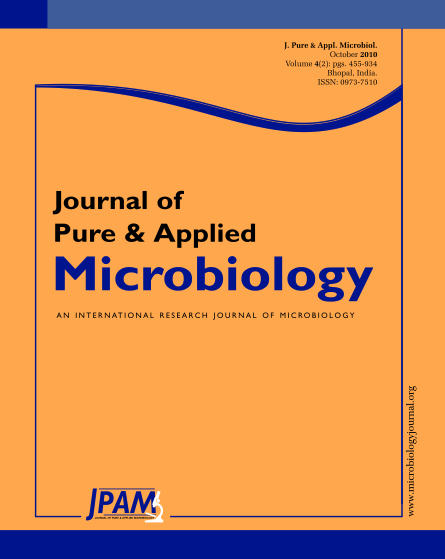Crops absorb phosphorous in the form of soluble orthophosphate ion. The solubility of phosphate is inhibited by the presence of iron and aluminium in acidic soils and calcium in neutral and alkaline soils. This leads to fixation of phosphorous, making it not available to crop plants. The phosphate solubilizing bacteria (phosphobacteria) secretes organic acids like Gluconic acid, Oxalic acid, Acetic acid etc., which act on insoluble phosphates and convert the same into soluble form, thus providing phosphorous to plant. An experiment was conducted for the detection of organic acids using HPLC technique. Results clearly indicates that Gluconic acid and Oxalic acids were produced by Pseudomonas stutzeri in PKVS media.
Phosphate solubilization, Pseudomonas stutzeri
© The Author(s) 2010. Open Access. This article is distributed under the terms of the Creative Commons Attribution 4.0 International License which permits unrestricted use, sharing, distribution, and reproduction in any medium, provided you give appropriate credit to the original author(s) and the source, provide a link to the Creative Commons license, and indicate if changes were made.


